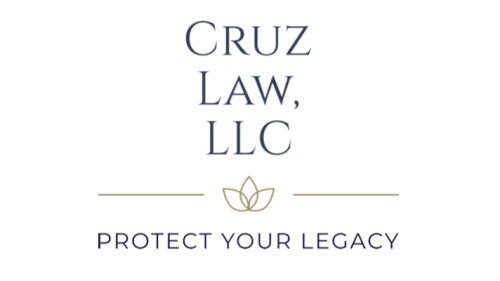Best Domestic Violence Lawyers in Alaska
Share your needs with us, get contacted by law firms.
Free. Takes 2 min.
Free Guide to Hiring a Family Lawyer
Or refine your search by selecting a city:
List of the best lawyers in Alaska, United States
About Domestic Violence Law in Alaska, United States
Domestic violence is a serious legal and social issue in Alaska, impacting families and communities across the state. Alaska law recognizes domestic violence as a range of abusive behaviors committed by one intimate partner or household member against another. These behaviors can include physical harm, threats, intimidation, stalking, sexual assault, and psychological abuse. Given Alaska's unique geography and diverse communities, access to help and legal resources can differ, but the state takes addressing and preventing domestic violence very seriously, with specific laws and protective mechanisms in place.
Why You May Need a Lawyer
If you are experiencing domestic violence, or have been accused of it, you may face complex legal issues that require professional assistance. Here are some common situations where hiring a lawyer is crucial:
- Filing for or defending against a protective order (sometimes called a restraining order)
- Navigating child custody and visitation issues that arise due to domestic violence allegations
- Representing your interests in criminal proceedings or responding to charges
- Determining your rights during a divorce or separation involving domestic violence claims
- Understanding your options regarding housing, financial support, and property, especially if leaving a dangerous situation
- Ensuring your safety and understanding how the law can protect you and your family members
- Assisting non-citizens facing domestic violence with immigration-related legal protections, such as the Violence Against Women Act (VAWA) self-petitions
A lawyer can explain your rights, advocate for your safety and interests, and help you navigate the court system in these sensitive and high-stress situations.
Local Laws Overview
Alaska law defines domestic violence as any criminal offense committed by a household member against another household member, except for certain property crimes. Household members are broadly defined and can include spouses, former spouses, adults or minors who are dating or have dated, persons living together or who have lived together, and persons who have a child in common.
Some important aspects of Alaska's domestic violence laws include:
- Protective Orders: Victims can request an emergency (20-day), temporary (up to 20 days), or long-term (up to 1 year) protective order. These may order the abuser to stay away, prohibit contact, award temporary custody of children, and more.
- Mandatory Arrest: Police must make an arrest if they believe domestic violence has occurred within the past 12 hours.
- Firearms: Protective orders can require the surrender of firearms, and federal law prohibits firearm possession after certain convictions or while under a qualifying protective order.
- Children: Courts consider domestic violence when making custody decisions and may limit a parent's custody or visitation if they pose a risk to the child's safety.
- Criminal Penalties: Penalties for domestic violence crimes can include jail, fines, and participation in batterers' intervention programs.
- Confidentiality: Certain records relating to protective orders and hearings may be kept confidential to protect the parties involved.
Frequently Asked Questions
What is considered domestic violence in Alaska?
Domestic violence includes physical harm, attempted harm, threats, stalking, sexual assault, harassment, or other criminal offenses committed by one household member against another.
Who qualifies as a household member under Alaska law?
A household member can be a spouse, former spouse, someone you have dated or are dating, someone you live with or have lived with, a relative, or someone you share a child with.
How do I get a protective order in Alaska?
File a petition at your local court. Judges can issue emergency orders quickly, followed by a hearing to decide on a longer-term order.
What protections can a court order provide?
A protective order can require the abuser to move out, stop contact, stay away from your home, work, or school, award temporary custody of children, and order other measures to ensure safety.
Can domestic violence affect child custody?
Yes. Courts must consider evidence of domestic violence when deciding custody and may limit or deny a parent's custody or visitation to protect the child's safety.
What should I do if I am falsely accused of domestic violence?
You should seek legal representation immediately to protect your rights, respond to protective order hearings, and defend yourself in criminal proceedings.
Is domestic violence a felony or misdemeanor in Alaska?
It can be either, depending on the severity and circumstances. Some acts are misdemeanors, while more serious or repeat offenses may be charged as felonies.
Will the police arrest someone for domestic violence?
Yes. Alaska has mandatory arrest laws requiring police to arrest the suspected abuser if they have probable cause to believe domestic violence occurred within the last 12 hours.
Can I get help if I am not a U.S. citizen?
Yes. Non-citizens abused by a spouse or partner may qualify for special immigration protections and should seek legal help from someone familiar with immigration and domestic violence law.
What should I bring to court for a protective order hearing?
Bring any evidence of abuse, such as photographs, messages, medical records, witness statements, and a chronology of events to support your case.
Additional Resources
If you or someone you know is affected by domestic violence in Alaska, there are local resources and organizations that offer help, including:
- Alaska Network on Domestic Violence and Sexual Assault
- Alaska Legal Services Corporation
- Alaska Court System - Domestic Violence Protective Orders
- Local police departments and state troopers
- Office of Victims' Rights Alaska
- Domestic Violence shelters and crisis hotlines across the state
These resources can provide legal assistance, temporary housing, counseling, and safety planning.
Next Steps
If you need legal advice or action regarding domestic violence in Alaska:
- Prioritize your immediate safety and contact emergency services if you are in danger.
- Contact a qualified lawyer familiar with domestic violence law in Alaska to discuss your situation and options.
- Gather documentation and evidence, such as text messages, photographs, or witness statements.
- If you need a protective order, visit your local court as soon as possible or seek help from a local advocacy organization.
- Consider reaching out to local or statewide support services for additional help and guidance.
Taking action can be difficult, but you are not alone. Legal professionals and local organizations can support you through every step of the process to protect your rights and your safety.
Lawzana helps you find the best lawyers and law firms in Alaska through a curated and pre-screened list of qualified legal professionals. Our platform offers rankings and detailed profiles of attorneys and law firms, allowing you to compare based on practice areas, including Domestic Violence, experience, and client feedback.
Each profile includes a description of the firm's areas of practice, client reviews, team members and partners, year of establishment, spoken languages, office locations, contact information, social media presence, and any published articles or resources. Most firms on our platform speak English and are experienced in both local and international legal matters.
Get a quote from top-rated law firms in Alaska, United States — quickly, securely, and without unnecessary hassle.
Disclaimer:
The information provided on this page is for general informational purposes only and does not constitute legal advice. While we strive to ensure the accuracy and relevance of the content, legal information may change over time, and interpretations of the law can vary. You should always consult with a qualified legal professional for advice specific to your situation.
We disclaim all liability for actions taken or not taken based on the content of this page. If you believe any information is incorrect or outdated, please contact us, and we will review and update it where appropriate.
Browse domestic violence law firms by city in Alaska
Refine your search by selecting a city.

















